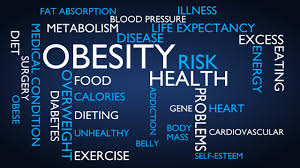Vitamin K, often overshadowed by more celebrated vitamins like A, C, and D, plays an essential role in maintaining health. This fat-soluble vitamin is crucial for processes that go beyond just bone health. From blood clotting to bone metabolism, Vitamin K impacts several vital functions in the body. In this comprehensive blog, we will delve into the benefits of Vitamin K, explore its sources, discuss the risks associated with deficiency and excess, and provide practical tips for ensuring adequate intake.
What is Vitamin K?
Vitamin K is a fat-soluble vitamin that exists in two main forms: Vitamin K1 (Phylloquinone): Found predominantly in green leafy vegetables and plays a critical role in blood clotting. Vitamin K2 (Menaquinone): Found in fermented foods and animal products, and is involved in bone health and calcium regulation. Both forms of Vitamin K are important for health, but they have distinct roles and sources. Vitamin K1 is primarily involved in the clotting process, while Vitamin K2 has a more prominent role in bone metabolism and cardiovascular health.
Benefits of Vitamin K
Blood Clotting
One of Vitamin K is most critical roles is in blood clotting. It is essential for synthesizing prothrombin, a protein that helps blood clot. Without adequate Vitamin K, the clotting process is impaired, leading to increased risk of excessive bleeding from injuries or surgeries. This function is vital for preventing uncontrolled bleeding and ensuring proper wound healing.
Bone Health
Vitamin K is crucial for maintaining strong bones. It helps in the synthesis of osteocalcin, a protein necessary for bone mineralization. Osteocalcin binds calcium to the bone matrix, ensuring that calcium is effectively used to strengthen bones. Adequate Vitamin K levels are associated with a reduced risk of fractures and osteoporosis.
Cardiovascular Health
Vitamin K2 is particularly important for cardiovascular health. It helps regulate calcium distribution in the body by activating matrix Gla-protein (MGP), which prevents calcium from accumulating in the arteries and soft tissues. This function helps reduce the risk of arterial calcification, a major factor in cardiovascular diseases like atherosclerosis.
Cognitive Function
There is evidence to suggest that Vitamin K may have a role in maintaining cognitive health. Some studies have indicated that Vitamin K2, in particular, might be associated with better cognitive function and a reduced risk of neurodegenerative diseases. The vitamin is role in reducing oxidative stress and inflammation is thought to contribute to these potential benefits.
Sources of Vitamin K
Vitamin K can be obtained from a variety of dietary sources. Including these foods in your diet can help ensure you meet your daily requirements:
Vitamin K1 Sources
Green Leafy Vegetables: Kale, spinach, Swiss chard, and collard greens are among the richest sources of Vitamin K1. Cruciferous Vegetables: Broccoli, Brussels sprouts, and cabbage also provide significant amounts of Vitamin K1. Herbs: Parsley and cilantro are good sources of Vitamin K1, often used in cooking and as garnishes.
Vitamin K2 Sources
Fermented Foods: Natto, a Japanese fermented soybean dish, is exceptionally high in Vitamin K2. Animal Products: Meat, dairy products (especially cheese), and eggs contain Vitamin K2. The content varies depending on the animals diet and the food preparation methods. Certain Cheeses: Hard cheeses like Gouda and Edam are notable sources of Vitamin K2.
Vitamin K Deficiency
Vitamin K deficiency can lead to various health problems. While rare in healthy adults with a balanced diet, deficiency can occur in certain situations and can have serious consequences:
Increased Bleeding Risk
The most notable consequence of Vitamin K deficiency is an increased risk of bleeding. Without sufficient Vitamin K, the blood clotting process is impaired, leading to symptoms such as easy bruising, prolonged bleeding from cuts, and excessive bleeding during surgery or injury.
Bone Health Issues
Deficiency in Vitamin K can lead to decreased bone mineralization, increasing the risk of fractures and osteoporosis. This is due to the reduced synthesis of osteocalcin, which is essential for binding calcium to bones.
Potential for Cardiovascular Issues and Newborns
Low levels of Vitamin K2 can contribute to arterial calcification and cardiovascular disease. Without adequate Vitamin K2, calcium may accumulate in the arteries, leading to arterial stiffness and increased risk of heart disease. Newborns are particularly vulnerable to Vitamin K deficiency because they have limited Vitamin K stores and their gut microbiota, which helps synthesize Vitamin K, is not fully developed. This can lead to a condition known as Vitamin K Deficiency Bleeding (VKDB) in infants. Certain medical conditions, such as malabsorption disorders, liver disease, or the use of anticoagulant medications, can also affect Vitamin K absorption and increase the risk of deficiency.















Comments
Leave a comment